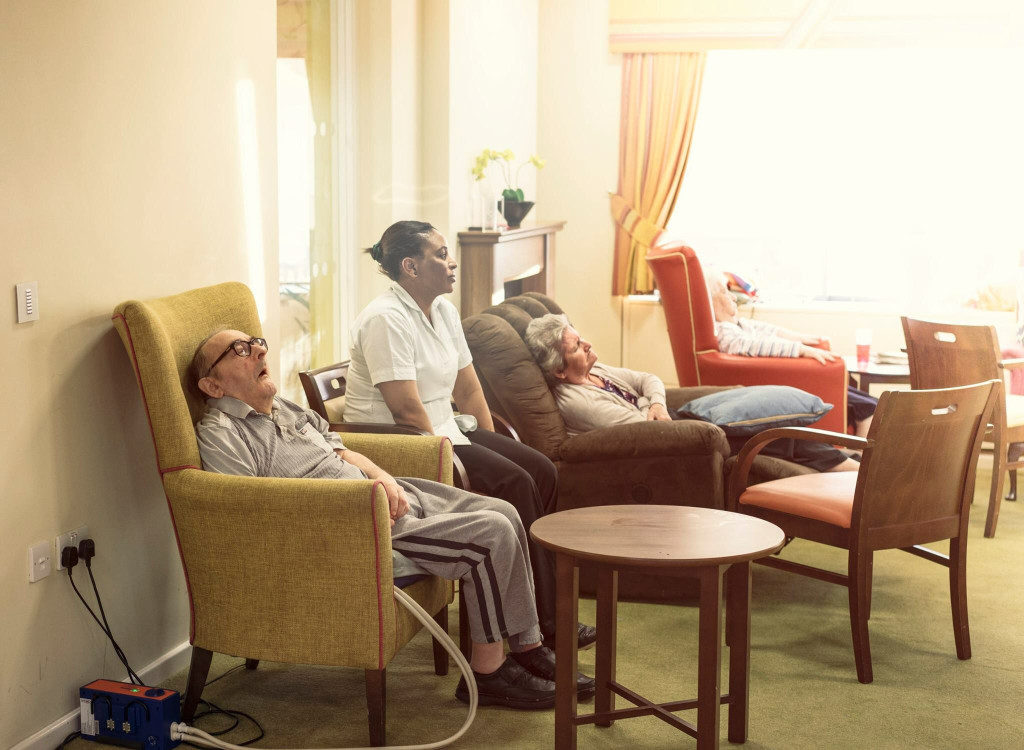Tips to avoid caregiver burnout
by Megan Marolf | Nov 02, 2020 | homecare, senior health, Family caregiving | 0 Comments

It’s rewarding, it’s challenging, and it can be full of never-ending tasks. Caregiving is wound up in so much of people’s lives, yet often goes unnoticed by those on the outside of care.
According to Mental Health America, 53 million Americans are unpaid caregivers. That’s a lot of people who at times work around the clock to ensure our seniors live safe, healthy and fulfilling lives.
SeaCare wants to highlight some ways for caregivers to avoid caregiver burnout during National Family Caregivers Month this November.
Recognize symptoms of caregiver burnout
According to Vitas Healthcare, this can include:
- Anger or frustration towards the person you’re caring for
- Depression or mood swings
- Difficulty dealing with everyday tasks
- Neglecting your own physical and emotional needs
- Overwhelming fatigue
Ask for help
Preventing caregiver burnout takes being honest with yourself. Do you need help? Are you feeling overwhelmed and stressed out? Do you hardly have anytime for yourself? Women in particular are expected to shoulder the emotional and physical burden of caregiving.
The good thing is, asking for help can get easier the more you do it.

You can look to neighbors, friends and other family members for help with caregiving tasks and responsibilities. Reach out to these people and see how much they’d be willing to help. Some might volunteer to come by and socialize or deliver groceries for your senior. Other people might be more willing to help with tougher tasks such as personal hygiene or scheduling appointments for your loved one.
Delegating those tasks becomes easier if you know what exactly you could use help with.
If you don’t have a close circle of people nearby that can help, consider reaching out to a far-away family member. With the right preparations they could take over your duties while you take a week or so off from caregiving. Sometimes we all just need to hit the reset button.
Come up with a plan
The further you plan ahead, the more prepared you’ll be to spread out responsibility.
Make a calendar for the month to save time every day figuring out who’s handling what. Figure out which tasks you can delegate and which ones only you or a professional caregiver can handle.

If your loved one resists taking medications then that responsibility might be reserved for the primary caregiver or a professional. But if you’re tired of constantly doing the grocery shopping, then that could be a simpler task for someone else to take over.
There are a few apps designed to keep track of who’s in charge of these daily tasks. CareZone is one such app that stores info about any medications and can even search for any discounts on health insurance services.
Lotsa Helping Hands allows you to coordinate meals, rides and appointments, as well as make announcements to others on your “care team.”
Don’t forget to leave important contact information in case anything should come up while your loved one is in the care of someone else.
Take care of yourself
It’s important to keep a pulse on your own mental health, and know that there are resources designed to support you. As the organization Mental Health America highlights, “being a family caregiver is difficult in the best of circumstances.”
Build in daily “me time” if you can. This could be a walk in nature, time to read a book at the end of the day, or a chunk of time to call a friend mid-day.
Plan to take a vacation for a week. Winter is a great time to get out of the pacific northwest to find sunshine elsewhere. Even taking a day trip to eastern Washington could be a welcome break of sunshine. SeaCare has a guide on safe travel during covid here.
Rates of caregiving are higher in black and indigenous communities of color. According to MHA, nearly 40 percent of caregivers identify as black, indigenous or people of color.
During a time of political and social unrest, it can be especially hard to stay mentally healthy. Check out SeaCare’s specific resources for caregivers of color here.
Know your options
Even if you provide the bulk of care to your loved one there are several options to help you along the way.
Check out Elder Helpers, an online directory of volunteer, non-paid caregivers that can help with a variety of tasks, from driving to grocery shopping. They screen all their volunteers and train them for senior care. You can speak with a volunteer by phone before committing to the service.
Adding smart technology into your caregiving routine can help take the burden off of full-time care. Read SeaCare’s blog on these options here. This can include apps to keep up with medication or GPS tracking technology.
With home healthcare services like SeaCare, we have caregivers at the ready for most kinds of caregiving needs. You can hire a caregiver for a few hours a day, on a weekly basis or for 24-hour care.
Our caregivers are passionate about providing the best care possible based on your needs.This includes personal care, Alzheimer's-specific care care, or live-in care. Find out your options by giving us a call.


0 Comments